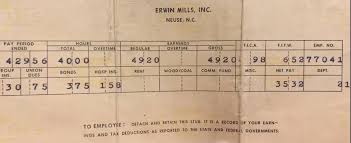Business is mostly conducted via email or phone communications.
Office hours 10:00 a.m. to 6:00 p.m, Mon. - Thurs., and 10:00 a.m. to 2:00 p.m. on Fridays.
SEND EMAIL INQUIRIES DIRECTLY TO:
Dawn.Boyer@me.com
Business is mostly conducted via email or phone communications.
Office hours 10:00 a.m. to 6:00 p.m, Mon. - Thurs., and 10:00 a.m. to 2:00 p.m. on Fridays.
SEND EMAIL INQUIRIES DIRECTLY TO:
Dawn.Boyer@me.com
Business is mostly conducted via email or phone communications.
Office hours 10:00 a.m. to 6:00 p.m, Mon. - Thurs., and 10:00 a.m. to 2:00 p.m. on Fridays.
SEND EMAIL INQUIRIES DIRECTLY TO:
Dawn.Boyer@me.com
Past Salary History Request – Legal or Not?
January 16th, 2025 by Dawn Boyer

Past Salary History Request – Legal or Not?
Occasionally, hiring companies will ask applicants for their salary history and/or pay stubs to prove their past compensation. While there is no legal reason for asking for proof of past salary or compensation from candidates offered employment, a practical reason might be to ‘check’ the new hire’s ‘honesty’ (moral character). If asked about your salary history, turn the tables and ask, “What is the importance of answering the question to my hire? How does that factor relate to my experience, career history, or documentable skill sets?” Another question is, “If I fail to provide that information, would that result in the withdrawal of the job offer?”
In July 2019, Virginia Governor Younkin approved a new State Compensation Policy (Fair and Equitable Pay) for state agencies, barring employers from basing new hires’ starting pay and future salary adjustments on a previous or existing salary. Other states with similar rules or laws are Alabama, Colorado, Connecticut, Delaware, the District of Columbia, Hawaii, Illinois, Maine, Massachusetts, Michigan, Nevada, New York, North Carolina, Oregon, Rhode Island, Vermont, and Washington.
What do you do if asked about your last salary? Give a figure, but ‘fudge’ the numbers higher? It depends upon what you provided to explain any potential disparity. You may need to ‘massage’ the message to an acceptable answer. An example of a reasonable response …
I assumed you asked about my cash salary. Still, I also included the ‘cash value’ of perks provided by my past employer, e.g., matching 401(k), cost of health and insurance policy monthly premiums (for employee and/or family), the cash value of annual club or gym memberships, plus spot, commission, and/or holiday bonuses, company vehicle, and other company perks. The figure I gave you includes my cash and non-cash annual compensation.
If you cannot justify your past salary figure, indicate that a job counselor (mentor) advised you to provide the salary figure where you felt you should be in your career versus where you are. Alternatively, you can explain that the original figure was a ballpark estimate. You researched the average salary of similar positions in the industry and felt your answer matched the parameters of the salary range.
Another optional answer is that you have little experience negotiating salaries since you do not shop often. You felt it was commonplace to inflate past salary information to justify the new higher wage. Regardless, your past employment experience, job skills, and educational qualifications easily justify the salary the hiring company offers and would be in line with the market value of what you bring to the company.
After spending hundreds, if not thousands, of dollars in labor, time, and effort to find, recruit, interview, and make an offer to a job candidate, a company would unlikely withdraw a job offer based on the future employee’s incorrect past salary information. Suppose the company withdraws the job offer based on misrepresenting past salary. In that case, they may have had a second equally qualified candidate in the wings and needed that ‘one extra brownie point’ to make the final determination with a justifiable reason for the hire.
Dawn D. Boyer, Ph.D., manages and operates a consulting firm in Virginia Beach, Norfolk, Richmond, Colonial Beach (Dahlgren), and Gloucester, VA. Her background is 25+ years in the Human Resources field, of which 12+ years are within the Federal & Defense Contracting industry. She is the author of 1,020+ books and textbooks on business, human resources research, career search practice, women’s studies, genealogy lineages, and adult coloring books. Her books are listed on Amazon.com under her author’s page for Dawn D. Boyer, Ph.D.
Reach her at Dawn.Boyer@DBoyerConsulting.com or http://dboyerconsulting.com.
Readers Comments
Past Salary History Request – Legal or Not?
January 16th, 2025 by Dawn Boyer

Past Salary History Request – Legal or Not?
Occasionally, hiring companies will ask applicants for their salary history and/or pay stubs to prove their past compensation. While there is no legal reason for asking for proof of past salary or compensation from candidates offered employment, a practical reason might be to ‘check’ the new hire’s ‘honesty’ (moral character). If asked about your salary history, turn the tables and ask, “What is the importance of answering the question to my hire? How does that factor relate to my experience, career history, or documentable skill sets?” Another question is, “If I fail to provide that information, would that result in the withdrawal of the job offer?”
In July 2019, Virginia Governor Younkin approved a new State Compensation Policy (Fair and Equitable Pay) for state agencies, barring employers from basing new hires’ starting pay and future salary adjustments on a previous or existing salary. Other states with similar rules or laws are Alabama, Colorado, Connecticut, Delaware, the District of Columbia, Hawaii, Illinois, Maine, Massachusetts, Michigan, Nevada, New York, North Carolina, Oregon, Rhode Island, Vermont, and Washington.
What do you do if asked about your last salary? Give a figure, but ‘fudge’ the numbers higher? It depends upon what you provided to explain any potential disparity. You may need to ‘massage’ the message to an acceptable answer. An example of a reasonable response …
I assumed you asked about my cash salary. Still, I also included the ‘cash value’ of perks provided by my past employer, e.g., matching 401(k), cost of health and insurance policy monthly premiums (for employee and/or family), the cash value of annual club or gym memberships, plus spot, commission, and/or holiday bonuses, company vehicle, and other company perks. The figure I gave you includes my cash and non-cash annual compensation.
If you cannot justify your past salary figure, indicate that a job counselor (mentor) advised you to provide the salary figure where you felt you should be in your career versus where you are. Alternatively, you can explain that the original figure was a ballpark estimate. You researched the average salary of similar positions in the industry and felt your answer matched the parameters of the salary range.
Another optional answer is that you have little experience negotiating salaries since you do not shop often. You felt it was commonplace to inflate past salary information to justify the new higher wage. Regardless, your past employment experience, job skills, and educational qualifications easily justify the salary the hiring company offers and would be in line with the market value of what you bring to the company.
After spending hundreds, if not thousands, of dollars in labor, time, and effort to find, recruit, interview, and make an offer to a job candidate, a company would unlikely withdraw a job offer based on the future employee’s incorrect past salary information. Suppose the company withdraws the job offer based on misrepresenting past salary. In that case, they may have had a second equally qualified candidate in the wings and needed that ‘one extra brownie point’ to make the final determination with a justifiable reason for the hire.
Dawn D. Boyer, Ph.D., manages and operates a consulting firm in Virginia Beach, Norfolk, Richmond, Colonial Beach (Dahlgren), and Gloucester, VA. Her background is 25+ years in the Human Resources field, of which 12+ years are within the Federal & Defense Contracting industry. She is the author of 1,020+ books and textbooks on business, human resources research, career search practice, women’s studies, genealogy lineages, and adult coloring books. Her books are listed on Amazon.com under her author’s page for Dawn D. Boyer, Ph.D.
Reach her at Dawn.Boyer@DBoyerConsulting.com or http://dboyerconsulting.com.












